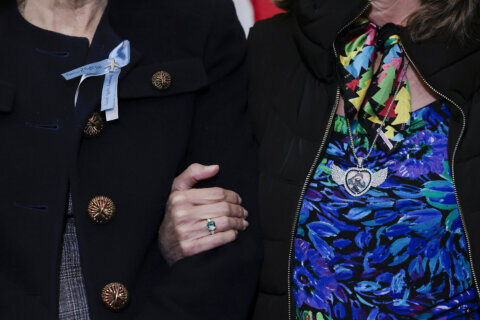WASHINGTON — The Federal Transit Administration has approved a corrective action plan from Metro to address the problems outlined in a scathing report.
In June 2015, FTA issued 91 required actions to address the safety concerns, including 78 on Metrorail and 13 on Metrobus. Some of the biggest problems found in the report include insufficient staffing in the Rail Operations Control Center (ROCC), inadequate training, insufficient time for track maintenance and issues with the tunnel ventilation systems.
“WMATA must demonstrate a renewed commitment to set a higher standard of safety for its riders and employees,” said U.S. Secretary of Transportation Anthony Foxx in a press release. “This plan is an opportunity for WMATA to make lasting changes and restore public confidence in its system.”
Metro’s corrective action plan addresses each of the concerns with potential fixes.
When it comes to ROCC staffing, Metro says it has 11 open positions and hopes to fill 10 before next summer by recruiting internal and external candidates. The plan points to a 2014 panel that found a higher salary could potentially help increase the pool of qualified candidates.
When it comes to insufficient track maintenance time, Metro says it will evaluate whether to begin track work earlier in the evening. Normally, track work begins when the system closes at midnight during the week, but the FTA audit found that crews aren’t getting enough time to do actual work before the 5 a.m. opening. Metro began some track work at 10 p.m. in the past, but it’s moved away from the practice in recent years.
However, Metro rejects claims from the FTA that it doesn’t provide enough track-work time overall.
“Between 2010 and 2013, extremely large amounts of track outages were provided to reduce backlogs of work, which was accomplished to plan. In 2014, there were 1,098 hours used for shutdowns alone. Metro also reduced the costs of large scale work zones and inconvenience to our passengers by utilizing more single-track operations instead of shutdowns. There are still projects that require complete outages based on the type of work performed. In 2015 484 hours have been used for shut-downs alone through June. Daytime single-tracking during non-rush hours have been utilized since April 2015,” according to the Metro response.
But overall, Metro agrees with most of the recommendations from the FTA and came to a consensus on plans to address the concerns.
“It is critical that WMATA effectively implement its corrective action plan,” said FTA Acting Administrator Therese McMillan. “And on a broader scale, to truly manage its safety risk on an ongoing basis, WMATA must demonstrate strong and consistent leadership, combined with a strong safety culture throughout its organization.”
Metro Interim General Manager Jack Requa will address the corrective action plans with the Safety and Security Committee on Friday.
“We appreciate the collaborative approach that FTA has taken as we partnered with them to develop the comprehensive plan that was approved today. The plan specifically addresses each of the required actions identified in FTA’s Safety Management Inspection, which was conducted earlier this year,” says Requa in a statement.
Members of Congress who have been critical of Metro since the January incident at L’Enfant Plaza are applauding this development as a positive step forward.
“Today’s news is a step in the right direction for improving Metro, and the next step is to make sure that each and every action item is implemented, maintained, and seen through to completion,” said Sens. Mark Warner and Tim Kaine. “But as this week’s problems remind us, there is a lot to address and it will be a long road to recovery. Metro desperately needs strong new leadership to implement safety improvements, and we will continue to push for that process to conclude as soon as possible.”
Metro is expected to complete most of the 91 recommendation before the end of 2017, although a few will be allowed to be completed by 2019.







